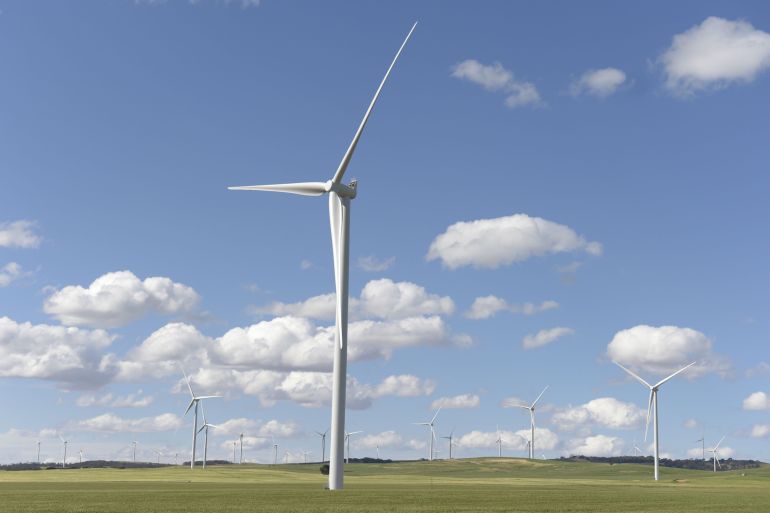Australia’s New South Wales unveils $23bn renewable energy push
Australia is one of the world’s biggest carbon emitters per capita and has fallen short of its Paris accord promises.

The Australian state of New South Wales (NSW) said it plans to shift towards renewable energy from coal and aimed to lure 32 billion Australian dollars ($23.3bn) of private investment into the sector in the next decade.
Australia’s most populous state said it would cut red tape and speed up approvals for businesses to invest in renewable energy projects, with four of its five coal-fired power plants expected to close in the next 15 years.
Keep reading
list of 4 itemsGlobal heating kills half the corals on the Great Barrier Reef
Rio Tinto’s CEO to quit after anger over Aboriginal cave blasts
‘What was unprecedented is now our future’
The plans would create almost 10,000 jobs and aim to bring 12 gigawatts (GW) of wind and solar power and 2GW of storage, such as pumped hydro, online by 2030, state Energy Minister Matt Kean said in a statement.
The opposition Labor Party said it would support the plans although they came “after a decade of delay”.
Most Australian states support greater use of renewable energy but the federal government has refused to match other developed countries in setting a target for net-zero carbon emissions by 2050. Instead, Canberra says zero emissions will be reached some time after 2050.
Falling short
Australia is currently far short of meeting its Paris Agreement target of cutting carbon emissions by 26 percent to 28 percent from 2005 levels by 2030.
The country is also the third-biggest per-capita emitter of carbon emissions after Saudi Arabia and Kazakhstan, according to the Union of Concerned Scientists based on their most recent data.
United States President-elect Joe Biden could encourage Australia to meet its emissions targets, the Australian Industry Group said, as he has said his administration will rejoin the Paris climate deal and aim to achieve zero emissions by 2050.
The US formally withdrew from the accord on November 4, the first country to do so, after US President Donald Trump announced the move in 2017.
Australian Prime Minister Scott Morrison said Biden’s election would not change Australia’s climate policies.
“Australia will always set its policies based on Australia’s national interests,” Morrison told reporters in Canberra.